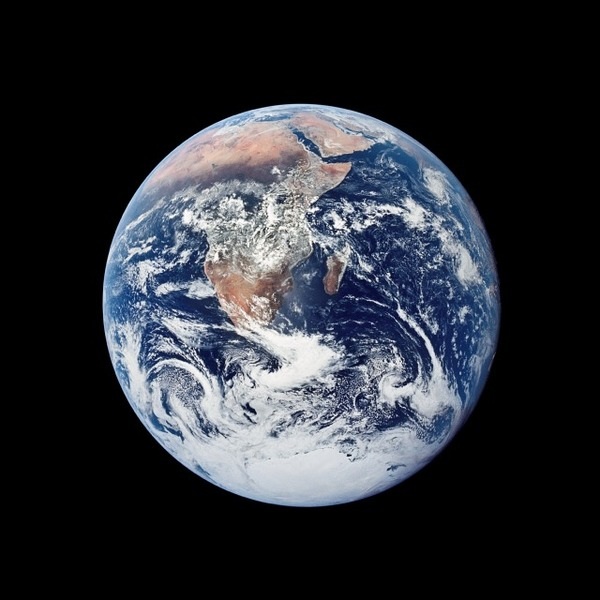Towards the New Solidarity Paradigm

A Few Starter Principles of Personalism Unleashed: Towards the New Solidarity Paradigm...
1. There is enough food in the world to provide every human being with over 3,000 calories a day. Even a slight redistribution of wealth would eliminate starvation on this Planet. (The assets of three families -- Bill Gates, the Sultan of Bunei, and the Walton family -- have a combined wealth of approximately $135 billion. This equals the annual income of 600 million people living in the world's poorest countries).
2. Globalization is just a small step removed from colonialism.
3. "Free trade" is a code phrase for whatever is to the advantage of the world's wealthy.
4. The creation of wealth does not occur in a vacuum and without consequences for the poor, for workers, and for the Planet. Without justice securing a fair redistribution of both wealth and real opportunity, the divide between the 'haves' and the 'have-nots' will only continue to dramatically increase.
5. Justice will begin with food a human right, with access to clean water a human right, with safe housing a human right, with health care a human right, with education a human right, with a living wage a human right, and with equal rights in every way for women and for every minority: FOR ALL!
6. Corporations are 'instruments' -- not persons. The rights of corporations begin with responsibilities for promoting justice for all. The concentration of wealth and power into supra-national corporations does not serve the interests of the human community. The monopolistic controls, drives, and powers of corporations must be halted and reversed to a truly human scale.
7. Unchecked economic growth is contrary to the wisdom teachings of Judaism, Christianity, Islam, Buddhism, Hinduism, Taoism, and the indigenous wisdom of the world's "ancient peoples". Limitless desires will never produce a content or happy human being -- to believe that is to have been fooled by someone serving the dominator paradigm: and obviously selling something. Happiness is found in sufficiency and service -- the solidarity paradigm -- not in selling oneself or one's soul...
8. Capitalism will never say "this is enough"... at least not until the human spirit has been destroyed and the Planet left a wasteland... so whom does capitalism actually serve?
9. Poverty is the direct result of injustice. Economic domination of the few over the many creates the consequence of poverty.
10. The new Solidarity Paradigm reveres and regards this Planet as worth saving. It will make practical the connection between the common good and individual rights and responsibilities. The solidarity paradigm stands for the full equality of women with men as co-creators of all that is true, good, beautiful, and noble in our human species and civilization. Rooted in Gandhian economics, it recognizes the dignity of labor as an equal partner of capital for the development of thriving local communities. The solidarity paradigm sees as inseparable economics and a wisdom-based spirituality. The solidarity paradigm recognizes real strength to be the power of the people to feed and clothe themselves with local resources -- as much as is possible... and then in sharing with others in need. The solidarity paradigm will enable the rich to realize that they only hold their wealth in trust for the full development and liberation of the entire human community -- and if they violate that trust, they do not deserve their wealth. The solidarity paradigm will limit the divide between the very wealthy and the very poor to a scale of about four to one -- this includes the ownership of land. The solidarity paradigm will replace the tyranny of globalization, militarization, consumerism, and fear with justice, nonviolence, mutual-aid, sufficiency (abundant simplicity), and security.
11. Where are the New Radicals, the Sacred Activists, who will fully articulate "the new solidarity paradigm"?
12. Genuine democracy is people power and control over their own lives -- governments find their legitimacy in serving the full development and liberation of every person and all peoples. Governments find their further legitimacy in limiting and regulating the activities of those with the skills to access wealth, privilege, and power.
13. Are you a personalist, a revolutionary mystic, for the people? Or are you satisfied in being a consumer, and a silent servant of the dominator paradigm which is steadily consuming and destroying this precious blue Planet?
14. What do you worship, and whom do you adore? Is it the Holy One and the revelation of One Love? Or is it Capitalism and the limitless expansion of desire and profit -- unto the destruction of our precious blue Planet?
15. The aim of the solidarity paradigm is to achieve the common good of all and the protection and preservation of the "commons" (air, water, soil, resources).
16. The solidarity paradigm looks to the full development and liberation of each person into her/his possibilities: wealth, therefore, is subordinate to and must serve the person and her full development.
17. The solidarity paradigm considers the ramifications of practices and policies "seven generations forward".
18. The solidarity paradigm is the adult perspective that philosophy, poetry and art, pleasure, and service are the truly great human endeavors -- not profit for the sake of profit, power with the goal of domination, or consumption for the purpose of mindless dissociation.
19. The solidarity paradigm will see to the primary needs of each of its members, seeking to produce locally as many necessaries of life as possible. It is also the responsibility of communities / states to guarantee employment, in service to the common good, for every person.
20. Solidarity economics plans and prepares for the celebration of "Jubilee Years" (every fifty years) when all accumulated wealth and land shifts back to the community for redistribution -- so the "game" of living to serve the common good can begin again.
21. In solidarity economics everyone in a region shares in the "ownership / stewardship" of all resources within that region.
22. Solidarity economics prioritizes the position of the person over capital. (Persons are human beings while capital is a means to the end of a just society.) The worker must be liberated through the development of his creative powers; variety must become an essential ingredient of her work; and every worker must have the opportunity of pursuing his "full development". The workday should be limited to six hours, with creative job sharing in family or community units. Creative leisure for the pursuit of philosophy and the arts, and direct community service, should be every person's opportunity and responsibility. Domestic care is of equal value to any other work.
23. The solidarity paradigm finds a healthy balance among people, nature, agriculture, industry, technology, and development. Each primary segment of society exists in relationship and in service to every other segment, unto the "seventh generation forward".
24. A solidarity economics encourages the individual's spirit of enterprise and creativity and develops that spirit within the context of the spirit of community service and the full development and liberation of the entire human family.
25. Solidarity economics and politics abolishes all exploitation and eliminates all injustice.
26. The solidarity paradigm is the joyful responsibility of each person and every segment of society to contribute to the common good.
27. A solidarity economics and politics fosters the concept of "trusteeship": the gifts of the earth, like the gifts of intellect and creativity, exist in a web of relationships and are meant for the full development and liberation of every person.
28. International tax havens (thefts from the common good treasury) for both individuals and corporations must be eliminated.
29. Solidarity economics and politics is rooted in a participatory democracy. Every attempt to control, manipulate, purchase, or dominate our constitutional electoral system must be eliminated. Fair elections mean one person, one vote: the only way to guarantee free and fair elections is the removal of the power of money from politics. Public financing of elections -- local, state, and national -- is a requirement of freedom and democracy.
30. In a participatory democracy, an essential responsibility of government is to serve the people by ensuring the common good through investments in our nation's infrastructure, energy, access to technology, medical care, housing, resource development and stewardship, take-it-to-your-limit education, and a guaranteed national income sufficient for a family's well-being. Immigrants deserve a clear path to citizenship; the judiciary system must give priority to the poor, the marginalized, the voiceless, and the powerless -- law must be understood as the means for protecting the most vulnerable in our society. Respect for the Constitution begins and ends with a judiciary and governance system that serves everyone equally -- protects the Planet seven generations forward -- and fosters the full development and liberation of every person.
Adapted Sayings of Yeshua the Poet:
Do not collect wealth for yourselves.
Where your treasure is, your heart will be.
How exceedingly hard it is for the rich to enter the Garden of Eternal Delight!
Go, sell everything you have, and give the proceeds to the poor; that way you will have your place in Love's Garden.
This is the Way that I give to you: love one another, without exception! Among you no one is illegal, and no one is unwanted or unworthy!
I was hungry and you fed me! Whatever you do for the least person on earth, you do the exact same thing to me!
My heart breaks for the capitalist!
My heart embraces the poor!
I have come into the world for its liberation!
Only One Earth!
